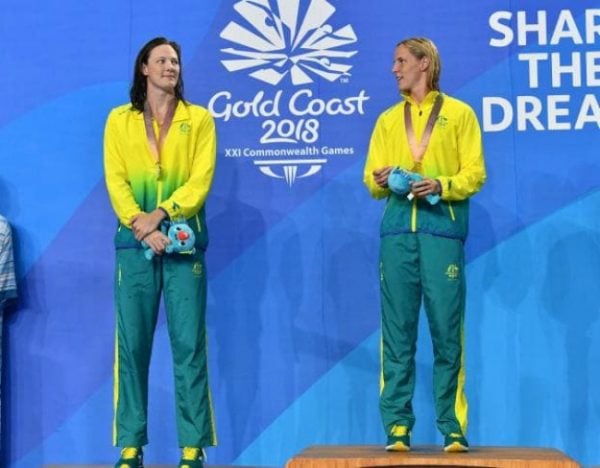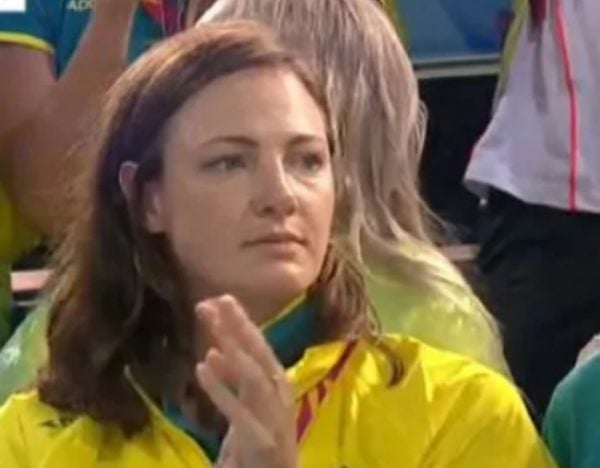When Bronte Campbell, 23, touched the wall with her fingertips just half a second before Canada’s Taylor Ruck, spectators at the Gold Coast Aquatic Centre roared with excitement at yet another Australian victory.
But it didn’t take anyone long to see that what appeared to be an extraordinary win, had hidden within it a story of loss.
On the sidelines stood Cate Campbell, her hair dry, in her green and yellow Commonwealth Games jacket. Her hands applauded, but her face betrayed a sense of defeat.
The night before, the 25-year-old was meant to win the 100m freestyle final.
That was until her younger sister smashed her own personal best to win Gold, leaving Cate standing a few inches below her on the podium, a silver medal around her neck.



Top Comments
“Losing” a spot in the relay team sucks, regardless of who gets it. Especially when they go on to win. While you watch, and clap and cheer. Kind of like a sporting version of the Oscars.
That being said, hasn’t Cate said she’s experienced relief at her performances here thus far? It’s good to hear that.
Plus, she could just be tired, it is an exhausting competition, one can only be cheery for so long!
The sister/sister dynamic is one that I’d personally hate to have, tbh! I feel so bad for the kids interviewed for the Woolworths commercials, where they talk about food shopping for their famous sister....like, nice way to build Non-Famous kid’s confidence??
I can see your point generally but am unsure about the use of the Campbell sisters to demonstrate it.
Bronte is usually in the shadows. She’s dealt with this constant ‘coming second’ for ages. Her moment to shine was fabulous! No sympathy for Cate - the roles have been reversed many times before.
It’s the non-famous siblings I feel a little more compassion towards.